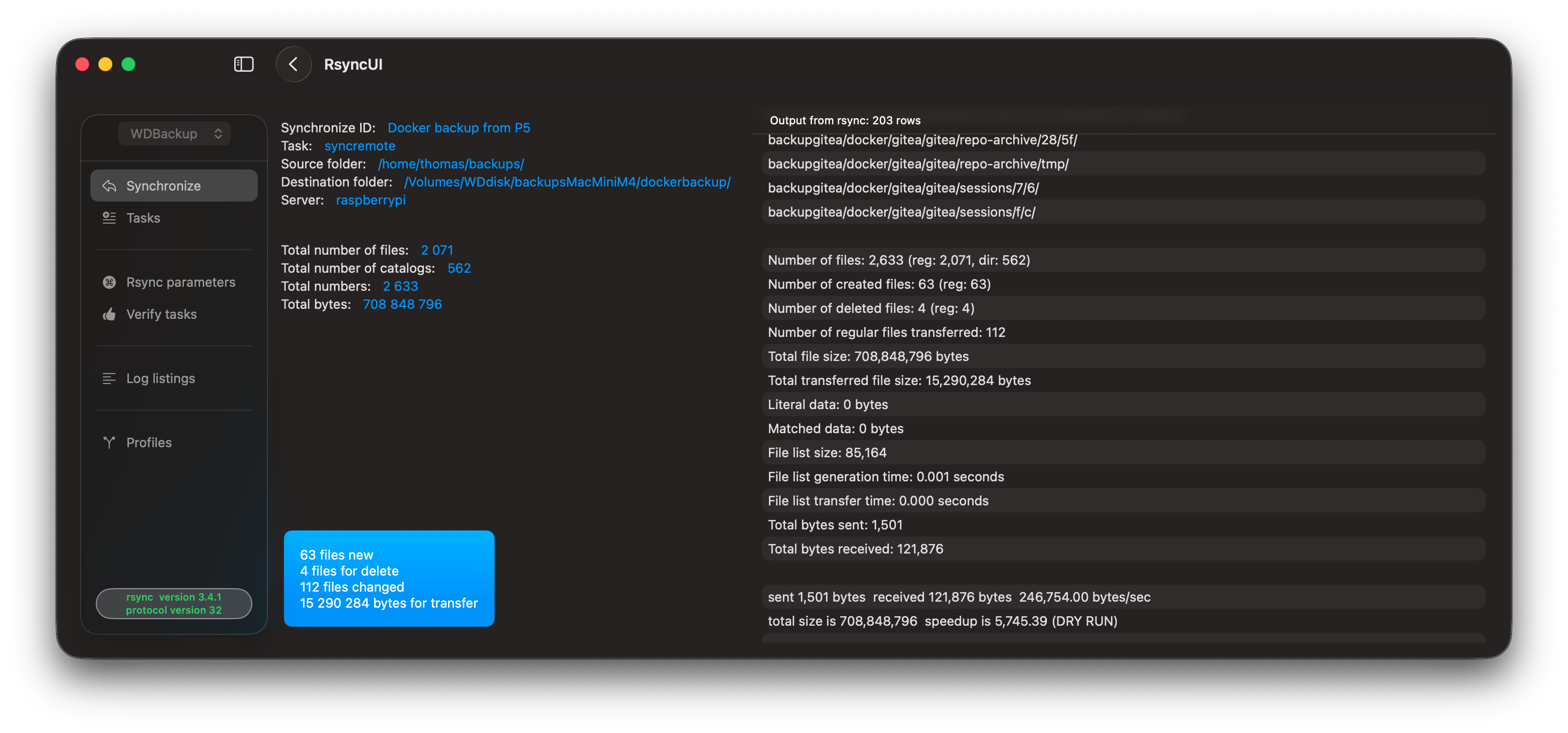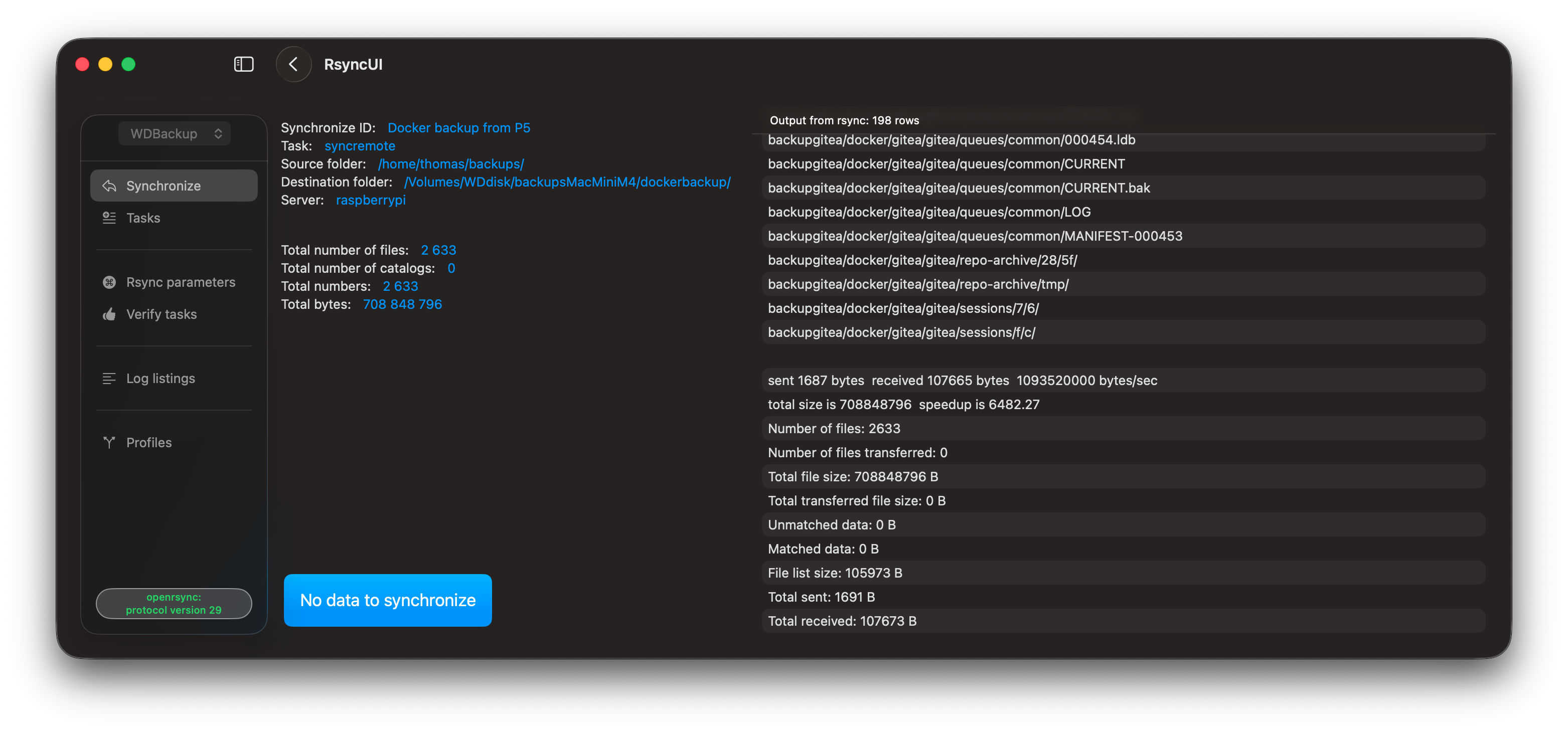Rsync versions
Categories:
Following the development of an adjusting output feature for rsync, I have identified a critical issues concerning the default openrsync in macOS and RsyncUI. A new version of RsyncUI, version 2.7.1 is released, which will impose certain restrictions on the operations permitted when using the default openrsync in macOS.
These restrictions, for the default openrsync, will only permit standard synchronization tasks and will prohibit snapshot or syncremote tasks.
I strongly recommend that all users of RsyncUI install the latest version of rsync. There are several methods to install the latest version of rsync. Please search for instructions on how to obtain and securely install the latest version of rsync.
Homebrew is one option. RsyncUI provides direct path support for Homebrew on both Apple Silicon and Intel Macs. Please refer to section Rsync and path in the Documentation.
One issue about openrsync and RsyncUI
Caution: This issue is specific to syncremote tasks and does not apply to the standard synchronize task.
Below is an illustration of a problem encountered with openrsync. The task in question is a syncremote task, which involves pulling date from a remote server. However, using the latest version of rsync, version 3.1x, it is indicated that there are data to be transferred.

When employing the default versions of rsync and openrsync, it is observed that RsyncUI indicates that no data is available for pulling, despite the presence of data to be transferred. The underlying problem lies in the manner in which RsyncUI interprets the output generated by openrsync for syncremote tasks.

Openrsync
The default /usr/bin/rsync on macOS Sonoma vs macOS Sequoia and macOS Tahoe differ in their versions. All versions adhere to protocol 29 of version 2.6.9, but the licenses for these versions are distinct. Additionally, there may be variations in the code. In macOS Sonoma, the default version is version 2.6.9, released in November 2006.
In macOS Sequoia and macOS Tahoe, the default version is a compatible rsync based on the BSD license. The command /usr/bin/rsync --version in macOS Sequoia and macOS Tahoe displays openrsync: protocol version 29, rsync version 2.6.9 compatible.
When querying ChatGPT regarding Apple and openrsync, the following response may be obtained: “Apple adopted openrsync due to the original rsync’s licensing under the GNU GPLv3, which Apple refrains from using in its system tools due to legal and compatibility considerations. Openrsync employs a permissive license, facilitating its integration into macOS without the constraints of GPLv3. Furthermore, it aligns more closely with Apple’s emphasis on security and minimal dependencies.”